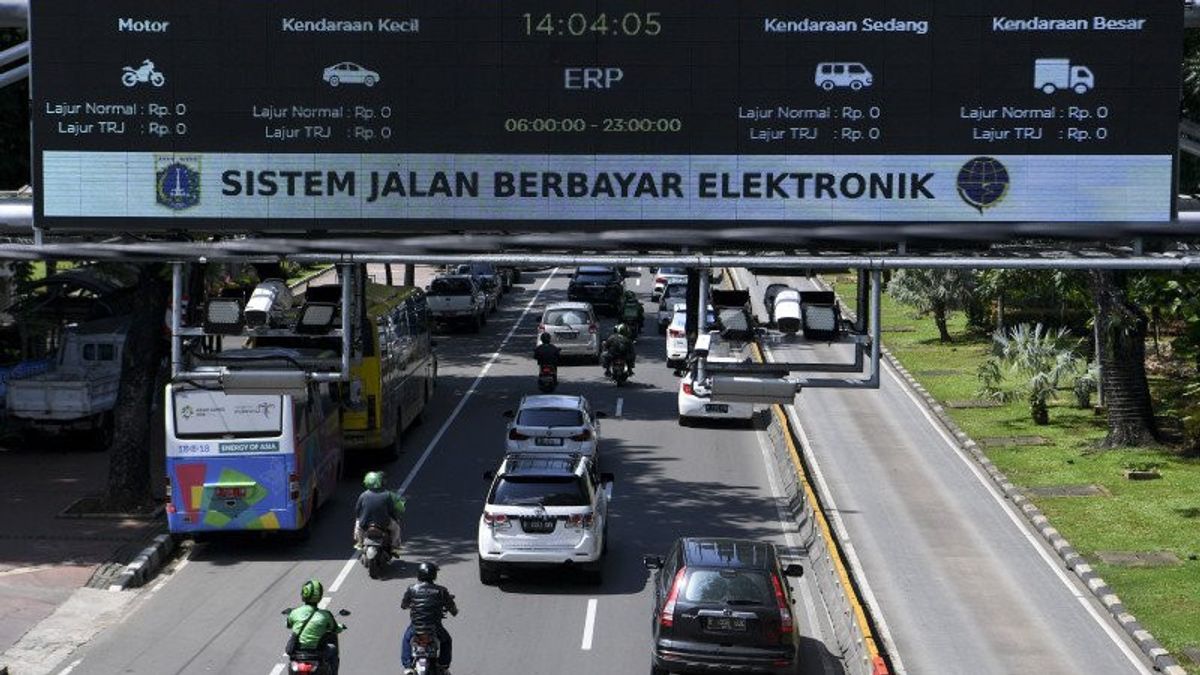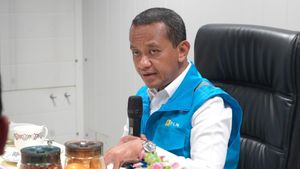JAKARTA - The DKI Provincial Government plans to implement a paid road system or Electronic Road Pricing (ERP) in several roads in the Capital City. Reportedly, if implemented, ERP will replace the odd-even system to limit the density of passing vehicles.
However, the Head of the DKI Jakarta Transportation Agency, Syafrin Liputo, said that if ERP is realized, the odd-even implementation will not necessarily be stopped.
"I need to say that it doesn't mean that once there is an ERP, then all roads are lost. However, it is possible that the staging (implementation) will continue", said Syafrin to reporters, Wednesday, March 24.
Syafrin said, when several roads in Jakarta were implemented ERP, several other roads were still implementing the odd-even system. This is to optimize the limitation of the number of vehicles to reduce congestion.
"In certain sections, ERP will be implemented, then on other roads to limit the movement or the number of private motorized vehicles, an odd-even number will also be applied. It could be in a parallel form like that", explained Syafrin.
In his planning, Syafrin said that currently, the DKI Jakarta Provincial Government is preparing a comprehensive study to review ERP implementation. Syafrin does not want ERP having problems if it is realized. This is because this program has stalled since several years ago.
"ERP has been tried since 2015. There are many obstacles, so it always fails. Based on this failure experience, we review all documents", said Syafrin.
"We hope that it won't take much longer, the entire document will be ready. So, we can conduct an auction for ERP implementation", he continued.
The start of the ERP plan problems faltered
The plan to develop a paid road system has actually been echoed since 2006 when the Governor of DKI Jakarta was held by Sutiyoso. Then, the ERP plan was finalized during Joko Widodo's leadership and was continued by Basuki Tjahaja Purnama (Ahok) in 2014. At that time, the preparation of regulations until the tender process was carried out.
Under Anies' leadership, the ERP implementation plan stalled again because two auction participants, namely Q Free ASA and Kapsch TrafficCom AB resigned leaving one vendor, namely PT Bali Towerindo Sentra.
Anies asked for a recommendation from the Attorney General's Office regarding the continuation of the ERP implementation process. As a result, the Attorney General's Office recommended Anies repeat the auction process. However, this recommendation is not mandatory.
In August 2019, Anies stated that the ERP discussion would be re-discussed or repeat the process from the beginning. PT Bali Towerindo Sentra did not accept it. They sued Anies to the Jakarta State Administrative Court (PTUN). As a result, the Jakarta PTUN ordered Anies to continue the ongoing auction process.
Anies hasn't given up yet. The provincial government then submitted an appeal to the Jakarta High State Administrative Court (PTTUN). Unfortunately, the PTTUN decision strengthens the Jakarta PTUN decision.
Anies tried again by filing an appeal to the Supreme Court (MA). MA finally won the appeal of Anies. Anies has the right to re-auction and open opportunities for other private parties in the ERP program.
The English, Chinese, Japanese, Arabic, and French versions are automatically generated by the AI. So there may still be inaccuracies in translating, please always see Indonesian as our main language. (system supported by DigitalSiber.id)













